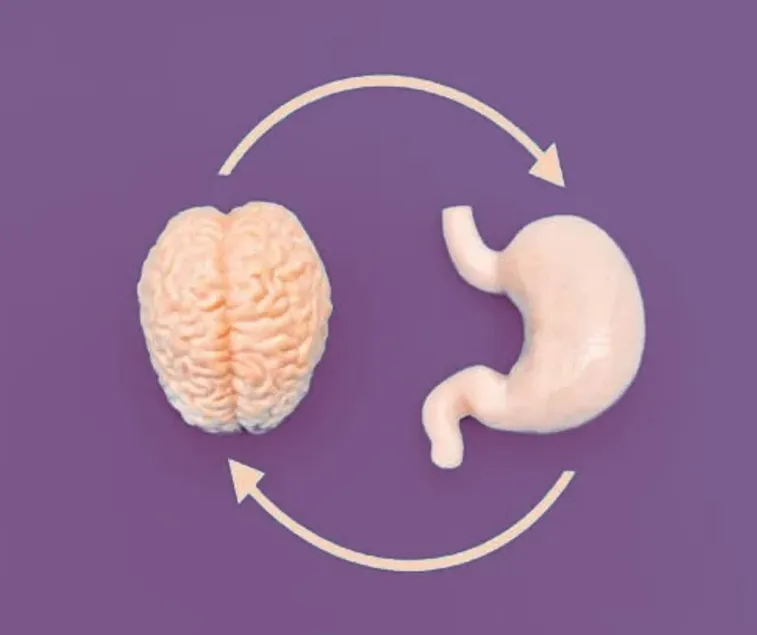
How Your Digestion Impacts Mental Clarity
Have you ever felt like your brain just isn’t firing on all cylinders—like your memory’s off, your mood is unpredictable, or you’re constantly distracted for no obvious reason?
When mental fog sets in, most people look to the brain for answers. But the real root of the problem often starts somewhere else entirely: your gut.
That might sound surprising, but your digestive system plays a major role in how your brain functions day to day. And if your gut is inflamed, imbalanced, or undernourished, your brain will feel it—loud and clear.
Let’s explore what the gut-brain axis is, how it affects your mental clarity and mood, and what you can start doing to support both systems today.
Your Brain and Gut Are Constantly Communicating
Your gut and brain are linked through a two-way communication system involving the vagus nerve, neurotransmitters, and immune messengers. This system is known as the gut-brain axis, and it's what allows your digestive system to influence your mental state—and vice versa.
When your gut is healthy and balanced, this connection supports calmness, focus, and emotional regulation. But when your gut is inflamed or your microbiome is disrupted, the signals going to your brain can become distorted, leading to brain fog, anxiety, low mood, or difficulty concentrating.
Why the Microbiome Matters
Your microbiome is the ecosystem of trillions of bacteria in your digestive tract. When it’s thriving, it helps regulate inflammation, supports immune function, and produces key brain chemicals like serotonin and dopamine. In fact, about 90% of your serotonin—your “feel-good” neurotransmitter—is produced in the gut.
But factors like antibiotics, processed foods, sugar, chronic stress, and environmental toxins can throw this ecosystem out of balance. When that happens, it can trigger gut wall inflammation (sometimes called leaky gut), allowing unwanted particles into the bloodstream. These particles can then lead to neuroinflammation, disrupt neurotransmitter production, and create the very symptoms many people attribute to stress or burnout: mental fog, irritability, anxiety, and even depression.
I've worked with clients who thought they were just "wired for anxiety" or battling depression—but once we supported their gut health, their brain fog cleared and their mood stabilized. The change was often dramatic.
A Simple Morning Gut Reset
One of the easiest and most effective ways to support the gut-brain axis is by starting your day with what I call a morning gut primer.
Here’s how:
Mix a glass of room-temperature filtered water with a pinch of high-quality sea salt and a squeeze of fresh lemon juice.
Drink it first thing in the morning on an empty stomach.
This simple ritual hydrates your cells, gently stimulates digestive secretions, and gives your gut a signal to wake up and function optimally throughout the day.
Feed the Right Microbes
Your beneficial gut bacteria need fuel to thrive—and that fuel comes from prebiotic-rich foods. These include:
Garlic
Onions
Leeks
Asparagus
Green bananas
Including just one of these foods daily can begin to shift the balance in your microbiome, nourishing the good bugs and crowding out the less helpful ones.
Consider Probiotics—But Choose the Right Ones
If you’re dealing with bloating, irregular digestion, or persistent mood issues, you may need more targeted support. In today’s world, where most of us have depleted microbiomes, a quality spore-based or clinically studied probiotic can help restore balance.
One of my top recommendations is MegaSporeBiotic, a broad-spectrum, spore-based probiotic that supports microbial diversity and reduces gut inflammation. It also helps decrease lipopolysaccharide (LPS) production—a key trigger for brain fog and mood disruption.
There are also specific strains that have been shown to positively impact brain function:
Lactobacillus rhamnosus (strain JB-1)
Known as a “psychobiotic,” this strain helps regulate GABA, a calming neurotransmitter. Studies show it can reduce anxiety-like behavior and improve stress resilience.
Bifidobacterium longum (strain 1714 or NCC3001)
This strain has been shown to reduce perceived stress and enhance memory performance. It also supports the gut lining, helping to reduce inflammation that can impact mental clarity.
You can find these strains in practitioner-grade formulas like Neuro uBiomic by Alimentum Labs (available by request) and Ther-Biotic Target GBx by Klaire Labs, both of which I offer through my Fullscript store.
The Bottom Line
If you’re feeling mentally foggy, forgetful, anxious, or just off—it might not be “all in your head.” It could be starting in your gut.
Your digestive system plays a powerful role in shaping your mood, energy, and mental performance. And the good news is that small daily changes—like hydrating your gut, eating prebiotic foods, or choosing the right probiotics—can make a big difference.
Your gut and brain are partners. When you support one, you support the other.
If you’re ready to explore how your gut may be influencing your brain health and want a personalized plan, book a free call with me. I’ll help you figure out where to begin so you can feel calm, clear, and truly yourself again.
👉 [Book a free call here] if you would like to get to the bottom of your brain issues or would like targeted professional-grade supplements.
